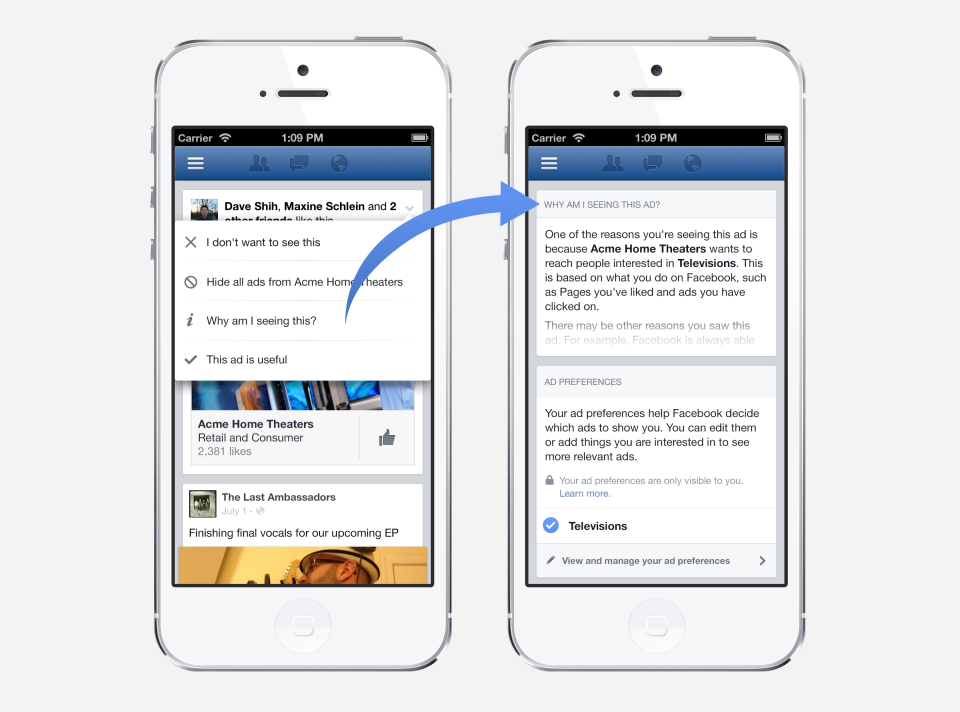The Independent's journalism is supported by our readers. When you purchase through links on our site, we may earn commission.
Facebook will track users outside of the site, says 'people want more targeted advertising'
Users can opt-out of the new tracking policy and view and edit their advertising profile used to target ads for the first time

Your support helps us to tell the story
From reproductive rights to climate change to Big Tech, The Independent is on the ground when the story is developing. Whether it's investigating the financials of Elon Musk's pro-Trump PAC or producing our latest documentary, 'The A Word', which shines a light on the American women fighting for reproductive rights, we know how important it is to parse out the facts from the messaging.
At such a critical moment in US history, we need reporters on the ground. Your donation allows us to keep sending journalists to speak to both sides of the story.
The Independent is trusted by Americans across the entire political spectrum. And unlike many other quality news outlets, we choose not to lock Americans out of our reporting and analysis with paywalls. We believe quality journalism should be available to everyone, paid for by those who can afford it.
Your support makes all the difference.Facebook has announced two major changes to its advertising policy that will let it track users across the web and give them access to the advertising profiles created by the social network of their likes and interests.
The site creates profiles in order to sell targeted adverts tailored to the individual but has never before let users view or edit the information in those files.
Users’ web browsing activities outside of Facebook will also be added to this profile through the Facebook ‘Like’ button. Even if individuals do not click this on third-party sites it still registers their presence if they are logged into Facebook in the same browsing session.
Similar buttons from Twitter and Google have identical abilities, but this is the first time Facebook has chosen to utilise this wealth of data. If users don’t want to be tracked in this way then they can opt out via the Digital Advertising Alliance or for mobile browsing adjust their settings on their handset.
Brian Boland, Facebook’s’ vice president of ad product, told the New York Times that people “want more targeted advertising” and that the aim of the new policies was to make it clearer to individuals why they were seeing certain ads.
Adverts on the site will have drop down menus in the top right-hand corner that gives users more control over these adverts. Individuals can find out why they are being shown an advert based on the likes and interests that Facebook has logged – or they can choose not to see any more similar adverts in the future.
The new policies will likely meet with a mixed reaction from privacy advocates and the site’s users. Although Facebook is giving people more control over what sort of adverts they see they’re also becoming more aggressive regarding the types of data they collect. The changes will appear for US users in a few weeks and in other countries over the following months.
Join our commenting forum
Join thought-provoking conversations, follow other Independent readers and see their replies
Comments